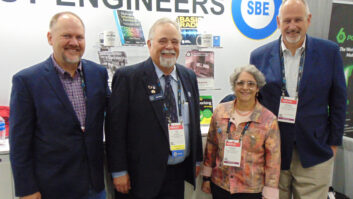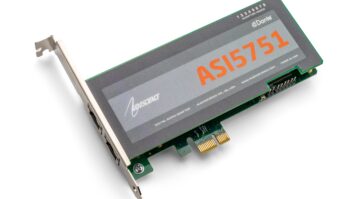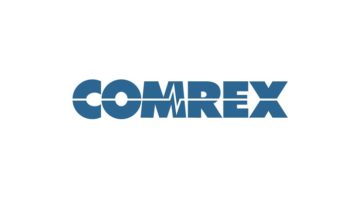I realize why an article on Linux (“Opening the Linux Window,” May 19) failed to mention two companies that are and have been selling Linux-based studio automation systems for the last few years.
We didn’t attend the NAB this year, just couldn’t justify it based on the ROI. I am sure your writer was told to roam the radio hall and get interviews with people concerning Linux. He interviewed whom he could, but failed to do the research necessary to provide a fair and balanced presentation – one that is beneficial to today’s radio broadcaster.
On Air Digital sold its first Linux-based system in 1999. We were purchased by Smarts Broadcasting in 2001, and adopted our Linux media engine to the Smartcaster in 2002. Since that time, we have installed Linux-based systems around the world, including New Zealand and Swiss Radio International. The writer should reconsider his statement that Scott (Systems) is the center of the Linux movement.
I would like to give your readers an idea of what a company that depends on Linux for its very survival thinks about the system, and reasons why we think it is “our” way to go.
No moving target
We chose Linux because we needed our own system, and were frustrated with the moving target that Windows provided – 95 was making way for 98, etc. We also had a legitimate Linux guru in our employment. These situations started us on this journey, and there has been no looking back.
In those early years, Windows reliability was suspect, but it has improved since then. We chose to put Linux into applications that benefit from the OS, and Windows into applications that are better served with the Windows OS.
Today, Linux is used in the 24/7 applications of on-air delivery. Distribution on a LAN/WAN/VPN or Internet basis is done with Linux for security reasons, and Windows is used in all production- and office-based applications. One of the great things about Linux is its ability to interface with Windows-based systems and networks.
The availability of device drivers in the Linux domain was an issue in the early days, but no longer. We support a variety of sound cards from consumer to professional, and have general audio tools from the GNU Public License domain that boggle the mind. From USB2 to advanced low-cost mass storage, there is no lack of solutions for our clients.
Linux is still the fastest-growing OS in the world, with more and more radio IT people becoming familiar with the system. We know; we talk to them. Additionally, no system is sold without a modem, and knowledge of Linux is not necessary. As our customers will attest, Linux has not been an issue with regard to service and support. No increased cost, just good reliability with service and support.
Tied tight
As I said, Windows has gotten a lot better. Calling XP Pro the OS of the Century is a bit much, but XP pro is reliable.
However, it is questionable in the areas of security. Almost all viruses are aimed at Windows. Hardly a week goes by without reading of another security breach in Windows. They attempt to fix it, but are trying to make a system both open and secure – those two don’t go hand in hand.
Linux developers don’t want the system to be open, and most don’t even want it to be friendly. They love command lines and the pure efficiency of getting a computer to do what you ask it to do without all the hassle. As a result, Linux systems can be tied down extremely tight. To this date, five years after putting Linux systems on the market, we have not had a virus get further than our Windows applications. Security is an important issue and will continue to be one of the main benefits of Linux.
Linux is an OS you control, not one that controls you. Ok, Mr. XP Pro. How great will it be when Longhorn finally makes it? Will your stuff run on Longhorn? Will the 98 stuff that barely ran on XP Pro run on Longhorn? What is it going to cost you to upgrade your application, and what is it going to cost your clients? Linux gives us something that MS just can’t – the ability to create our own OS.
Having said that, On Air Digital announces the release of RadioSuite Linux, honed with all the right drivers and to be upgraded as new features and capabilities arise. But it will evolve, not throw out the old and bring in the new.
Lastly, Kevin Lockhart (former president of Prophet Systems) mentioned that they have run their Windows applications on the Windows emulator available in Linux but saw no advantage. Running a Windows program on a Linux Windows emulator does not a Linux provider make.
I also want to commend the direction that BE has taken in the soft adaptation of Linux.
The fact is that today’s vendors are solution providers. Linux will never over take Windows. It is not the OS of the masses, but rather the right application for certain jobs.












